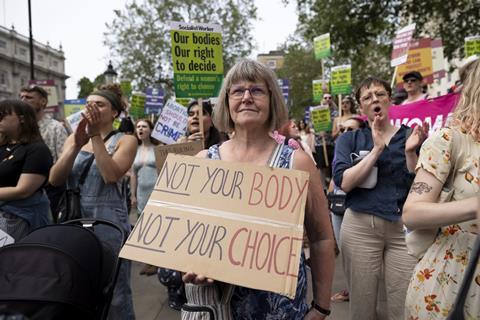As efforts continue to decriminalise abortion, Dr Kalpana Dein warns new guidance won’t protect women, but their abusers

Around 30 years ago, I worked as an intern in an Indian village. A woman attended the clinic with her mother, complaining about a “swelling” in her stomach. There was something familiar about the large bump. As our senior doctor examined her, my suspicions were confirmed. The woman was eight months pregnant. It transpired that the young lady had become intimate with her neighbour, over the course of the year. Her mother was dismayed about what this would mean for the family’s honour; to have an “illegitimate grandchild”. Adoption was out of the question. The mother (not the daughter) was offered an abortion. The pregnant lady wasn’t involved in the consultation.
I have never forgotten that episode in an otherwise dull job. Images of a baby being sacrificed at the altar of the family’s reputation, continue to haunt me years later. Alongside the abject helplessness of the pregnant woman. Abortion did not give her control over her own body. It took it away.
This phenomenon is not unique to India. According to a 2019 survey by D-Cyfor, 1 in 7 abortions in the UK are coerced. Like the young lady I encountered, abortion did not empower these women, it dehumanised them.
I was therefore dismayed to read about Dame Diana Johnson’s bill to decriminalise abortion. In support of this, the Royal College of Obstetrics and Gynaecologists have instructed healthcare professionals to never report illegal abortions to the police. Their advice suggests that if a nurse feels a woman was being forced into having an abortion, she should turn a blind eye.
Who does this guidance protect? Women, or their abusers?
In recent months, the British police have been criticised for investigating an increasing number of abortions, since pills by post was introduced during Covid. One example stands out.
In 2020, Carla Foster (who was in her third trimester) contacted BPAS claiming to be less than 10 weeks pregnant. She was not required to see a midwife, even virtually. Ms Foster was sent the abortion pill by post, as her telephone assessor had no way of deducing that she was at term. When it became evident that she had misled professionals into ending the life of a viable foetus, Ms. Foster was initially arrested and given a prison term. On appeal this was reduced to a suspended sentence.
There was an outcry in the press about the trauma that Ms Foster experienced for her actions; as if the cruel, painful death of her unborn daughter was insignificant.
If Ms Foster had been seen face to face by BPAS staff, this scenario would not have played out the way it had. Had any health organisation failed a patient as BPAS had, it would have faced an investigation. Not BPAS. On the contrary, Clare Murphy, BPAS’s Chief Executive declared that the solution to the problem was not to simply end the pill by post, but to “reform abortion law so that no more women are unjustly criminalised for taking desperate actions at a desperate time in their lives.” This Bill is a response to that.
If abortion is decriminalised, a foetus will no longer be considered human even if it can survive outside the mother’s body
Why should any woman in modern Britain feel so “desperate” as to take this “desperate action’’? Is the UK no different to a village in India where the status of a woman is so low, that the adoption of a viable foetus is not an alternative?
As a psychiatrist of many years, I have come across women who are still grieving the legal abortion of their baby decades after the event. We would be fooling ourselves if we think that women will not be traumatised by a late term abortion. As a forensic psychiatrist I have treated women who murdered their children, in “desperate” situations. As a doctor, I have nothing but compassion for them, but does that justify decriminalising infanticide?
If the intentional killing of a baby (inside the womb) is not a crime in Britain, then what is? What would it say of Britain as a progressive nation if this bill succeeds in Parliament?
If abortion is decriminalised, a foetus will no longer be considered human even if it can survive outside the mother’s body. This is a sea change in the ethics of abortion, being pushed through Parliament. It is unjustifiable scientifically as it denies the viability of the viable foetus and ignores the pain of the unborn child as it’s life is terminated. It defies logic.
All of humanity’s greatest evils have this common thread: the dehumanising of victims, the absence of reason, the support of the elite, and the silence of many. It is time to speak up.






































No comments yet